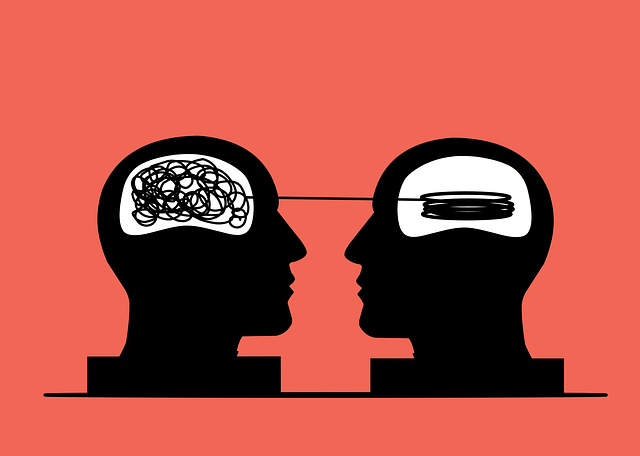Bipolar Disorder, characterized by extreme mood swings, requires specialized support. Broomfield offers comprehensive therapy including medication, psychotherapy, and tailored programs focusing on burnout prevention, confidence building, and social skills to empower individuals with this condition. Their holistic approach addresses physical, emotional, and psychological well-being, fostering a supportive environment for proactive mental health management. Mental health advocacy, like Broomfield's initiatives, raises awareness, combats stigma through education, and encourages early intervention, ultimately creating inclusive communities that prioritize mental well-being. By integrating stress reduction methods, crisis guidance, and self-care practices, these strategies significantly promote overall well-being.
Mental health advocacy initiatives play a crucial role in creating awareness, breaking down stigma, and improving access to support. This article explores various aspects of mental well-being, focusing on bipolar disorder. We delve into understanding the condition, highlighting Broomfield’s innovative approach to therapy, which offers a holistic perspective. Through building awareness and implementing effective advocacy strategies, we can revolutionize mental health care. Real-world success stories inspire us to consider future directions for impactful initiatives centered around bipolar disorder and beyond.
- Understanding Bipolar Disorder: Demystifying the Condition
- Broomfield's Approach to Therapy: A Holistic Perspective
- Building Awareness: The Role of Advocacy in Mental Health
- Strategies for Effective Mental Health Advocacy Initiatives
- Real-World Impact: Success Stories and Future Directions
Understanding Bipolar Disorder: Demystifying the Condition

Bipolar Disorder is a complex mental health condition characterized by extreme mood swings, from intense mania to deep depression. It’s essential to demystify this often-misunderstood illness to foster empathy and support for those affected. The disorder involves periods of elevated energy, euphoria, and heightened productivity, alternating with episodes of sadness, hopelessness, and fatigue. These shifts can significantly impact an individual’s daily life, relationships, and overall well-being.
In Broomfield, Bipolar Disorder Therapy plays a pivotal role in managing symptoms and improving quality of life. Professional treatment options include medication, psychotherapy, and specialized programs tailored to address the unique challenges faced by individuals with bipolar disorder. Beyond therapy, initiatives focused on burnout prevention, confidence boosting, and social skills training can further empower those with bipolar disorder, enabling them to navigate their condition effectively and lead fulfilling lives.
Broomfield's Approach to Therapy: A Holistic Perspective

Broomfield’s Approach to Therapy offers a holistic perspective that has proven effective in treating various mental health conditions, including bipolar disorder. This therapeutic method emphasizes the interconnectedness of one’s physical, emotional, and psychological well-being, recognizing that these aspects cannot be treated in isolation. By adopting this approach, therapists create a supportive environment that encourages clients to explore and address underlying issues from multiple angles.
The process involves personalized communication strategies tailored to each individual’s unique needs. It promotes self-awareness and emotional intelligence, empowering individuals to manage their mental health proactively. Additionally, Broomfield’s Approach integrates burnout prevention techniques, ensuring clients develop sustainable coping mechanisms to avoid exhaustion and maintain long-term recovery. This comprehensive strategy not only treats symptoms but also equips individuals with the tools to navigate life’s challenges effectively.
Building Awareness: The Role of Advocacy in Mental Health

Mental health advocacy plays a pivotal role in building awareness and challenging stigmatizations associated with conditions like bipolar disorder. Initiatives focusing on Broomfield Bipolar Disorder Therapy, for instance, aim to educate communities, dispel myths, and foster understanding. Through public talks, workshops, and online resources, advocates provide valuable information about symptoms, treatment options, and recovery paths. This not only empowers individuals facing similar challenges but also encourages early intervention and improved support systems.
Moreover, mental health advocacy drives policy changes and shapes guidelines, such as Mental Health Policy Analysis and Advocacy and Crisis Intervention Guidance. By influencing legislative decisions and risk assessment protocols (for professionals), these efforts ensure better access to care, more effective crisis management, and safer environments for those battling mental health issues. Ultimately, advocacy contributes to a more inclusive and supportive societal landscape where bipolar disorder and other conditions are met with empathy, compassion, and appropriate resources.
Strategies for Effective Mental Health Advocacy Initiatives

Mental health advocacy initiatives require a multifaceted approach to effectively raise awareness and reduce stigma. One key strategy is to provide Broomfield Bipolar Disorder Therapy and other specialized treatments, ensuring access to professionals who can offer tailored support. This includes creating supportive communities where individuals can share their experiences openly, fostering an environment of understanding and compassion.
Additionally, integrating Stress Reduction Methods and Crisis Intervention Guidance into advocacy programs empowers individuals with tools to manage their mental health proactively. Encouraging the adoption of Self-Care Practices, such as mindfulness and regular physical activity, further strengthens resilience against mental health challenges. By combining these strategies, advocacy initiatives can make a significant impact in promoting overall well-being and fostering inclusive communities that support mental health awareness.
Real-World Impact: Success Stories and Future Directions

Mental health advocacy initiatives like Broomfield Bipolar Disorder Therapy have made significant strides in improving lives. By focusing on early intervention and tailored support, these programs offer hope and healing to individuals struggling with bipolar disorder. Success stories abound, with participants reporting improved symptom management, enhanced quality of life, and increased resilience through accessible therapy options.
Looking ahead, the future of mental health advocacy holds promise. Integrating evidence-based practices such as stress reduction methods and communication strategies within these initiatives can further empower individuals. Additionally, leveraging technology to expand access to care and developing robust public awareness campaigns can ensure that support reaches those who need it most. These collective efforts contribute to a more inclusive and supportive society where mental well-being is prioritized and celebrated.
Mental health advocacy initiatives, such as those employing Broomfield’s holistic therapy approach, play a pivotal role in demystifying conditions like bipolar disorder. By fostering awareness and understanding, these efforts not only empower individuals to seek support but also pave the way for more effective interventions, including Broomfield Bipolar Disorder Therapy. Looking ahead, continued success in advocacy will lead to enhanced accessibility to care, improved outcomes, and a more supportive landscape for mental health wellness on a global scale.













